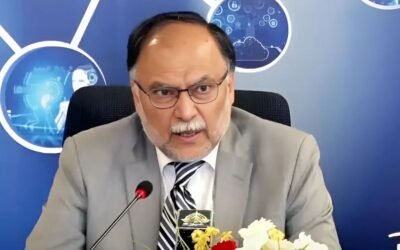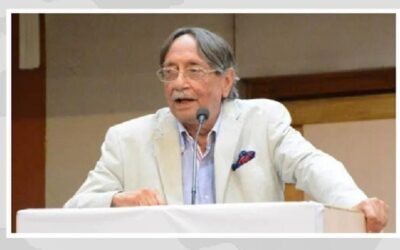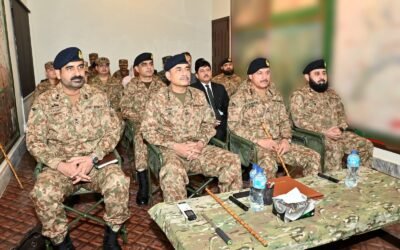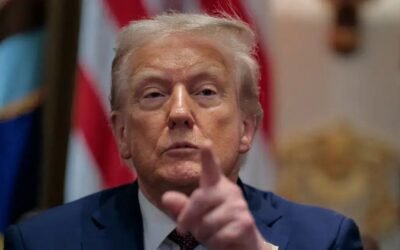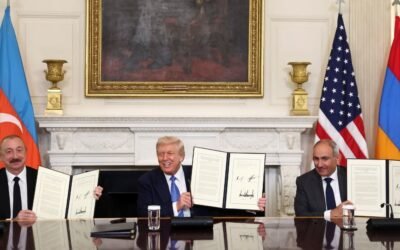Dhaka | Islamabad — Deputy Prime Minister and Foreign Minister Ishaq Dar has concluded a historic two-day visit to Bangladesh, marking the most high-profile engagement between the two countries in over a decade. The visit was described by both sides as a “significant milestone” in Pakistan–Bangladesh relations, with renewed commitments to trade, regional cooperation, and people-to-people linkages.
You May Like To Read: Pakistan Army Intensifies Nationwide Flood Relief Operations: Thousands Rescued, Key Infrastructure Restored
High-Level Meetings, and Regional Cooperation
Deputy Prime Minister Dar met Chief Adviser Professor Muhammad Yunus, during which the two leaders discussed the full spectrum of bilateral and regional issues. Chief Adviser Yunus underscored the need to revitalise regional cooperation through the South Asian Association for Regional Cooperation (SAARC), highlighting that stronger ties between Pakistan and Bangladesh could help promote regional peace, connectivity, and economic growth.
Dar reaffirmed Pakistan’s desire to forge forward-looking relations with Bangladesh, stressing enhanced cooperation in trade, youth linkages, cultural exchanges, and connectivity. Both sides agreed that recent rapprochement marks a positive paradigm shift in relations and should be institutionalised to ensure long-term stability.
🔊PR No.2️⃣5️⃣8️⃣/2️⃣0️⃣2️⃣5️⃣
Deputy Prime Minister and Foreign Minister’s Visit to Bangladesh https://t.co/2geQJbe7ZB
🔗⬇️ pic.twitter.com/TkEB0eiRkb— Ministry of Foreign Affairs – Pakistan (@ForeignOfficePk) August 24, 2025
Six Agreements Signed to Boost Cooperation
During delegation-level talks between Dar and Bangladesh Foreign Adviser Touhid Hossain, both sides signed six important agreements and MoUs in diverse areas:
- Visa abolition for diplomatic and official passport holders,
- Establishment of a Joint Working Group on Trade,
- Cooperation agreements between the Foreign Service academies,
- An MoU between Associated Press of Pakistan (APP) and Bangladesh Sangbad Sangstha (BSS) for media collaboration,
- A partnership between the Institute of Strategic Studies Islamabad (ISSI) and the Bangladesh Institute of International and Strategic Studies (BIISS),
- A Cultural Exchange Programme to promote people-to-people ties.
“These agreements will institutionalise cooperation in trade, media, diplomacy, academic exchange, and cultural initiatives, while creating lasting mechanisms for bilateral engagement,” the Foreign Office stated.
Knowledge Corridor, and Scholarships
Pakistan also announced the launch of a Pakistan–Bangladesh Knowledge Corridor, which will offer 500 scholarships to Bangladeshi students over the next five years, including 125 in medicine. Additionally, training for 100 Bangladeshi civil servants will be arranged, and scholarships under the Pakistan Technical Assistance Programme will be expanded from 5 to 25 annually.
Engagements with Political Leaders, and Civil Society
Deputy Prime Minister Dar held wide-ranging interactions with Bangladeshi political leaders, including former Prime Minister and BNP Chairperson Begum Khaleda Zia and Jamaat-e-Islami Emir Dr. Shafiqur Rahman, conveying best wishes on behalf of Prime Minister Shehbaz Sharif and appreciating their political and social contributions.
He also engaged with representatives from the National Citizens Party (NCP), senior bureaucrats, academics, members of the intelligentsia, journalists, and cultural figures, reaffirming Pakistan’s commitment to strengthening fraternal ties based on shared history, heritage, and traditions.
Deputy Prime Minister and Foreign Minister , Senator Mohammad Ishaq Dar @MIshaqDar50, called on H. E. Professor Muhammad Yunus @ChiefAdviserGoB, Chief Adviser of Bangladesh in Dhaka, today. The discussion covered revival of old connections between the two countries, promoting… pic.twitter.com/2pR6G5q2MO
— Ministry of Foreign Affairs – Pakistan (@ForeignOfficePk) August 24, 2025
Trade, and Investment Focus
In a separate meeting, Deputy PM Dar and Commerce Minister Jam Kamal Khan met senior Bangladeshi economic officials, including the Bangladesh Investment Development Authority Chairman, the Bangladesh Bank Governor, and the National Board of Revenue Chairman. Discussions focused on enhancing trade, promoting connectivity, and boosting investment flows.
Both sides expressed optimism about expanding bilateral trade to $1 billion annually, with particular emphasis on exploring opportunities in manufacturing, textiles, agriculture, and small and medium enterprises (SMEs).
Path Forward
The two governments agreed to revive the long-stalled Joint Economic Commission (JEC), with a meeting tentatively planned for later this year. Finance Minister Muhammad Aurangzeb may lead Pakistan’s delegation to Dhaka for this purpose.
In his concluding remarks, Deputy Prime Minister Dar reaffirmed Pakistan’s strong desire to build a cooperative and forward-looking partnership with Bangladesh, based on mutual respect and shared aspirations.
“The people of Pakistan have deep fraternal sentiments for the people of Bangladesh. Our relations are anchored in centuries-old traditions, cultural affinity, and a shared vision for a peaceful and prosperous South Asia,” Dar said.
The visit marks a new chapter in Pakistan–Bangladesh relations, with both sides committing to transform goodwill into sustained economic, cultural, and regional cooperation.
You May Like To Read: Beijing terms Pakistan Army ‘Steadfast Guardian’ of Pak–China Friendship












